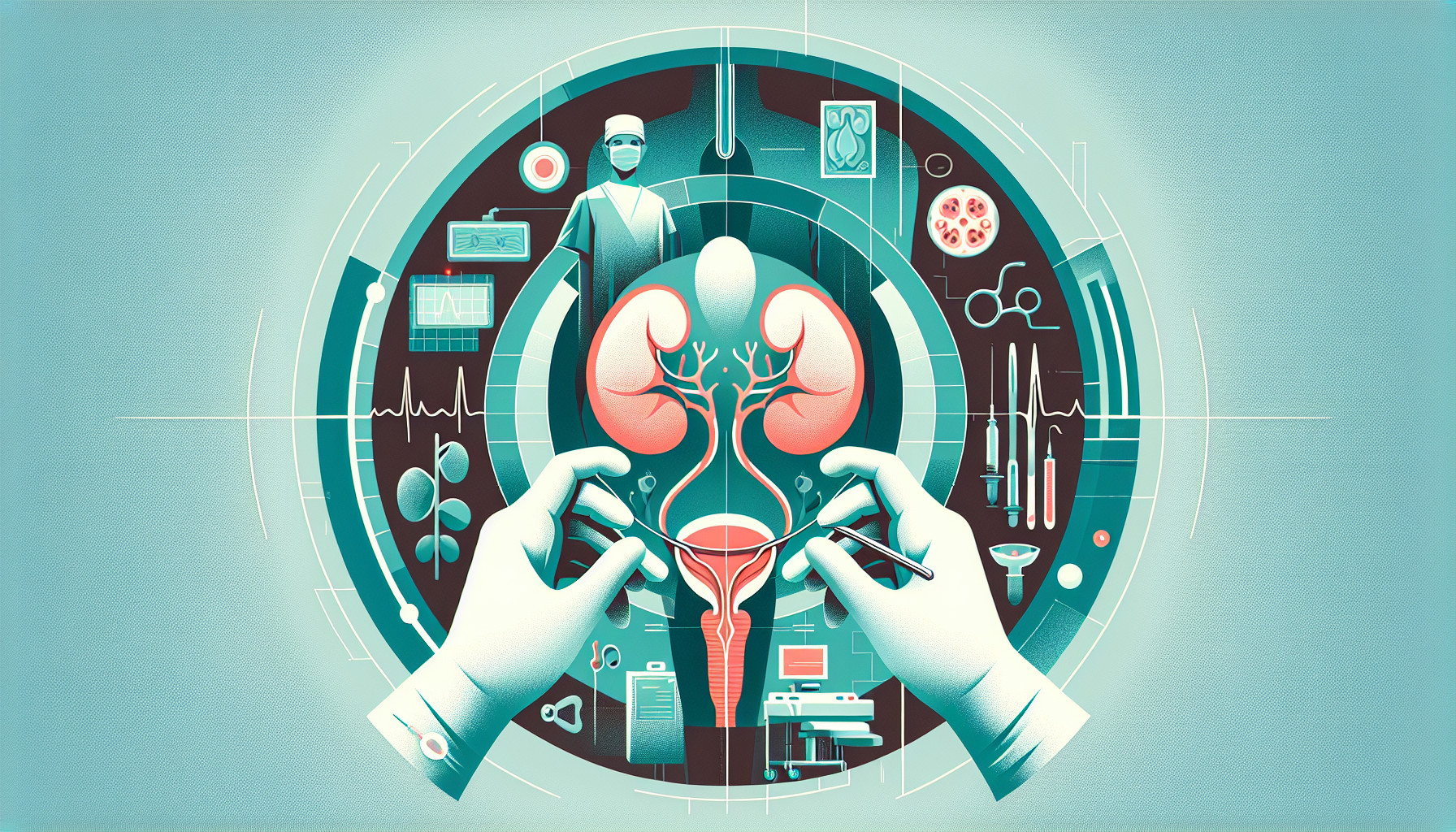Our Summary
This research examines the best area to target during radiotherapy for bladder cancer. The study looked at over 2,000 patients with bladder cancer who had undergone a specific type of surgery, then had either their bladder only (BO) or their bladder and pelvic lymph nodes (BPN) treated with radiotherapy. It found that while there has been an increase in the use of BPN treatment over the past decade, there was no significant difference in survival rates between the two groups. Therefore, targeting the pelvic lymph nodes in addition to the bladder may not improve the long-term survival of patients with this type of bladder cancer. Further research is needed to determine the best areas to target during radiotherapy for this condition.
FAQs
- What was the primary focus of this bladder cancer research study?
- Was there a significant difference in survival rates between patients who had only their bladder treated versus those who had both their bladder and pelvic lymph nodes treated?
- Does targeting the pelvic lymph nodes in addition to the bladder improve long-term survival rates for bladder cancer patients?
Doctor’s Tip
A helpful tip a doctor might tell a patient about bladder surgery is to follow post-operative care instructions carefully, including avoiding heavy lifting or strenuous activity, staying hydrated, and taking prescribed medications as directed. It is also important to attend all follow-up appointments and communicate any concerns or changes in symptoms to your healthcare provider. Additionally, maintaining a healthy lifestyle with regular exercise and a balanced diet can help support the healing process and overall bladder health.
Suitable For
Bladder surgery may be recommended for patients with bladder cancer who have not responded well to other treatments such as chemotherapy or radiation therapy. It may also be recommended for patients with bladder conditions such as urinary incontinence or urinary retention that have not improved with other treatments. Additionally, bladder surgery may be recommended for patients with bladder stones, bladder diverticula, or interstitial cystitis that have not responded to other treatments. Ultimately, the decision to undergo bladder surgery will depend on the individual patient’s specific condition and medical history.
Timeline
Before bladder surgery:
- Patient is diagnosed with bladder cancer through various tests and scans.
- Patient undergoes consultation with a urologist to discuss treatment options, including surgery.
- Patient undergoes pre-operative tests and preparations, such as blood work and imaging studies.
- Patient may undergo neoadjuvant therapy, such as chemotherapy or radiation, to shrink the tumor before surgery.
After bladder surgery:
- Patient undergoes post-operative recovery, which may involve a hospital stay and pain management.
- Patient may require a urinary catheter for a period of time after surgery.
- Patient undergoes follow-up appointments with their healthcare team to monitor healing and recovery.
- Patient may require additional treatments, such as chemotherapy or radiation therapy, depending on the stage and aggressiveness of the cancer.
- Patient may require ongoing surveillance, including regular check-ups and imaging studies, to monitor for any signs of cancer recurrence.
What to Ask Your Doctor
- What are the potential risks and complications associated with bladder surgery?
- What is the success rate of the specific type of bladder surgery being recommended for me?
- What is the recovery process like after bladder surgery?
- How long will it take for me to fully recover and resume normal activities?
- Are there any alternative treatment options to bladder surgery that I should consider?
- Will I need to undergo any additional treatments, such as chemotherapy or radiation therapy, after bladder surgery?
- How often will I need to follow up with you after bladder surgery?
- What lifestyle changes or modifications will I need to make after bladder surgery?
- Are there any specific medications I will need to take before or after bladder surgery?
- What is the long-term outlook for someone who undergoes bladder surgery for my specific condition?
Reference
Authors: Patel SA, Liu Y, Solanki AA, Baumann BC, Efstathiou JA, Jani AB, Chang AJ, Fischer-Valuck B, Royce TJ. Journal: Urol Oncol. 2023 Jul;41(7):325.e15-325.e23. doi: 10.1016/j.urolonc.2022.12.011. Epub 2023 Jan 30. PMID: 36725382
